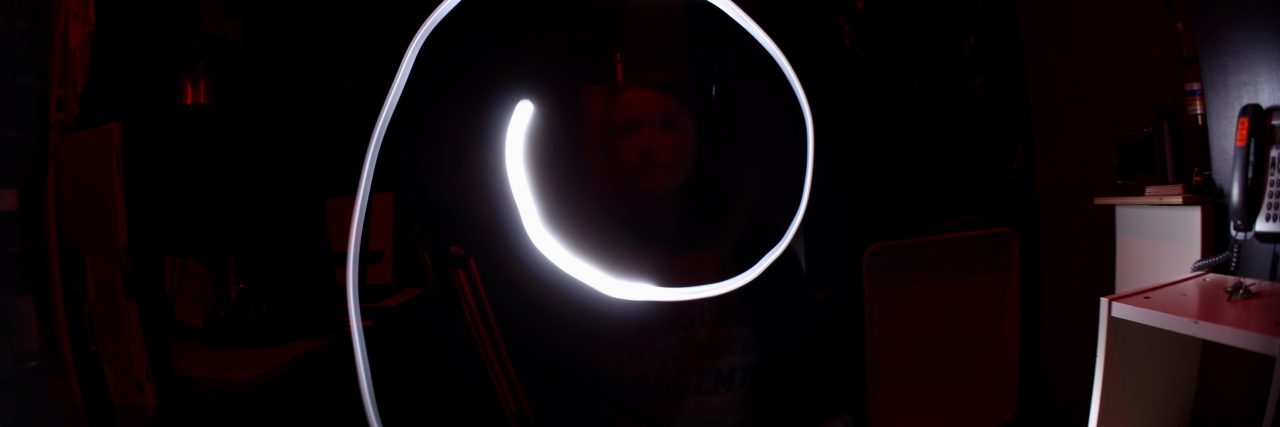The day I got into my dream school, I cried approximately three times. Twice, due to crushing anxiety prior to the 5 p.m.-release of decisions and the third at 5:01 when I opened my email to a flurry of “Congratulations!” and digital confetti from the college.
• What is Bipolar disorder?
I cried that third time for a few reasons. Besides the overwhelming emotional relief that washed over me as soon as I realized I had been admitted, I cried because, at some points in my high school career, I thought I would never see the day I was admitted to college. After being diagnosed with anxiety and depression at a young age, I went into inpatient psychiatric hospitalization at the end of my freshman year due to a mental breakdown. At the time, I believed nothing was wrong with me. I fought to be released. By the end of the ordeal, I was diagnosed as bipolar disorder type II, a mental illness categorized by drastic mood swings and impulsive behavior. After another hospitalization, multiple medication trials, and daily struggles associated with my disorders, I became stable, content, and made it to my senior year of high school. College, finally, loomed on the horizon.
Of course, as interviews and essays approached, a question loomed over me: do I tell colleges about my mental illnesses? Disclose extremely personal information that could make or break my application? I wanted to be evaluated fairly in my applications; however, over the course of my four years in an extremely competitive, high-stress private high school, my grades had taken a toll — mainly due to motivational struggles I endured from depression. I had to make a decision: do I divulge my mental illness in a truthful reason for my dropping grades, or do I stay silent? The last thing I wanted to be was discriminated against, especially after how far I’d come in recovery. Not to mention, in a time where mental health has been shoved into a national spotlight and with ableism reigning strong, I didn’t want my mental health to be seen as a downside to my application.
In short, there’s no right or wrong answers to my questions. Google searches along the lines of “do I tell colleges about my mental illness” provided conflicting interests. In a world of promises of “you are not alone,” I couldn’t seem to find myself in line with anyone else. However, when one out of five people will struggle with a mental illness in their lifetime, I knew there were fellow seniors out in the world going through the same process as me, asking the same questions in the same Google search bars. College application decisions exist in a world behind closed doors; would a rejection mean the college was telling me it wasn’t the place for me? Or would it be a rejection based on stigma, looking past my qualifications?
So here’s what I did: I brought it up when the moment appropriately presented itself. I am fortunate enough that I never had to take a leave of absence or have any issues marked on my transcript or record. When one college asked for an essay about grit, I felt the only thing I could truthfully do was describe an account of my experiences as a bipolar student. I was accepted. In the case of my dream school, a question along the same lines arose in my in-person interview. My words sunk in my throat. Did I risk my acceptance at a school I had pined to go to for so long? With a deep breath, I said I lived with a mental illness. I didn’t disclose what I necessarily was diagnosed with but instead moved on to describe my successful recovery and activism within my school community through giving speeches about mental illness and advocating against stigma across social media. If there’s one thing I learned, it was to find the silver lining. I didn’t enjoy glossing over my struggles, pitfalls, and triumphs with bipolar disorder, anxiety, and depression, and presenting a watered-down version of my personal accounts. But by pointing out the upsides to my recovery, I left the interview feeling prouder that I had spoken about my mental illness in the mildest of terms rather than not bringing it up at all.
Of course, anxiety plagued me until the day that admissions decisions were released if I had done the right thing or not. But my early-decision acceptance confirmed my initial relief after the interview. Through presenting my mental illness as a learning experience and something I had gained valuable insight about life through, I felt as if I had figured out the right thing to do.
Recovery is not linear. If you are applying to college and are in a similar spot that I was in, I believe the best thing you can do is tell the truth. However much information you disclose to your schools is a personal decision; still, I abide by the rule of finding an upside to a seemingly negative situation. Describe your recovery. Talk about a time you faced the impossible and overcame it in the light of your mental illness. College admissions are very personal, and colleges want to know as much about you as they can, but you still have a decision of how much information you give them and withhold. Much more, no two cases of mental illness and no two stories are the same. Make your story your own and take control of the situation.
I have fears about going to college. Will my recovery be for naught in a new place? Will I face discrimination that other college students living with mental illnesses have? Whatever happens, college admissions are a scary, anxiety-provoking time in the lives of high school seniors; but to live through it is another feat in the face of living with mental illness.
Photo via Audrey Lee

